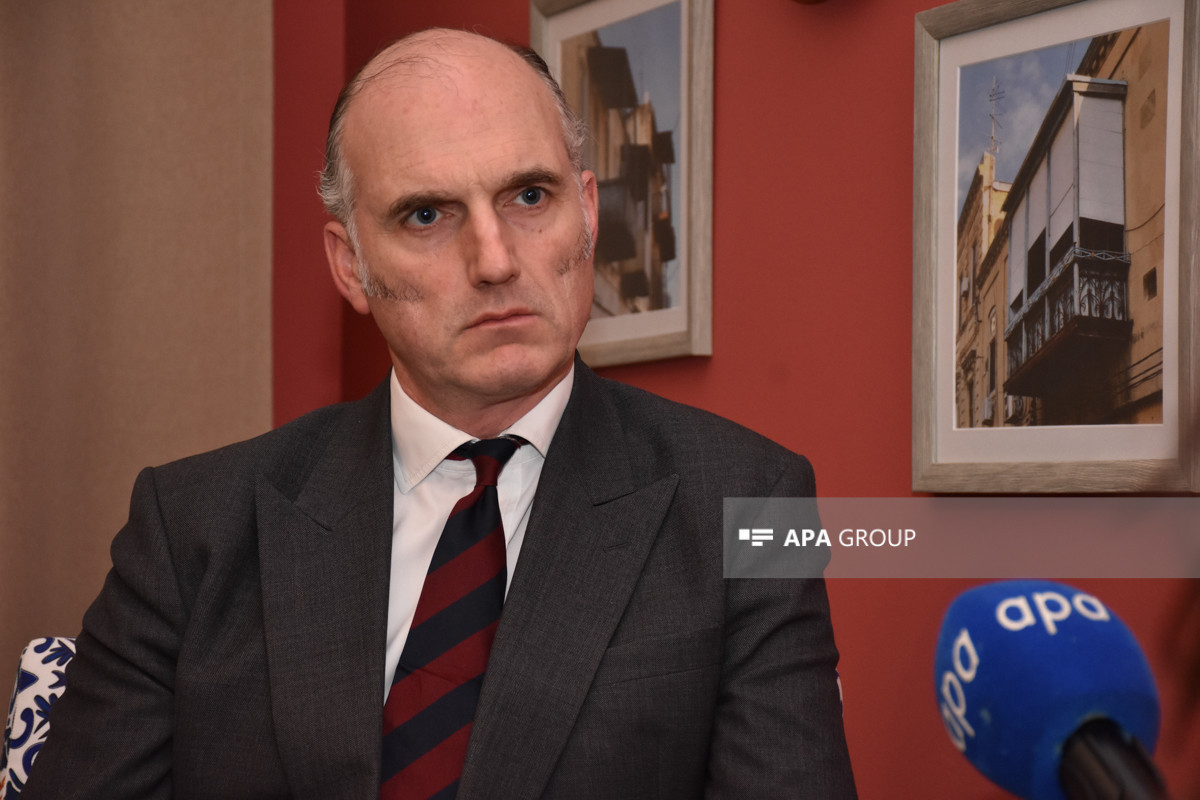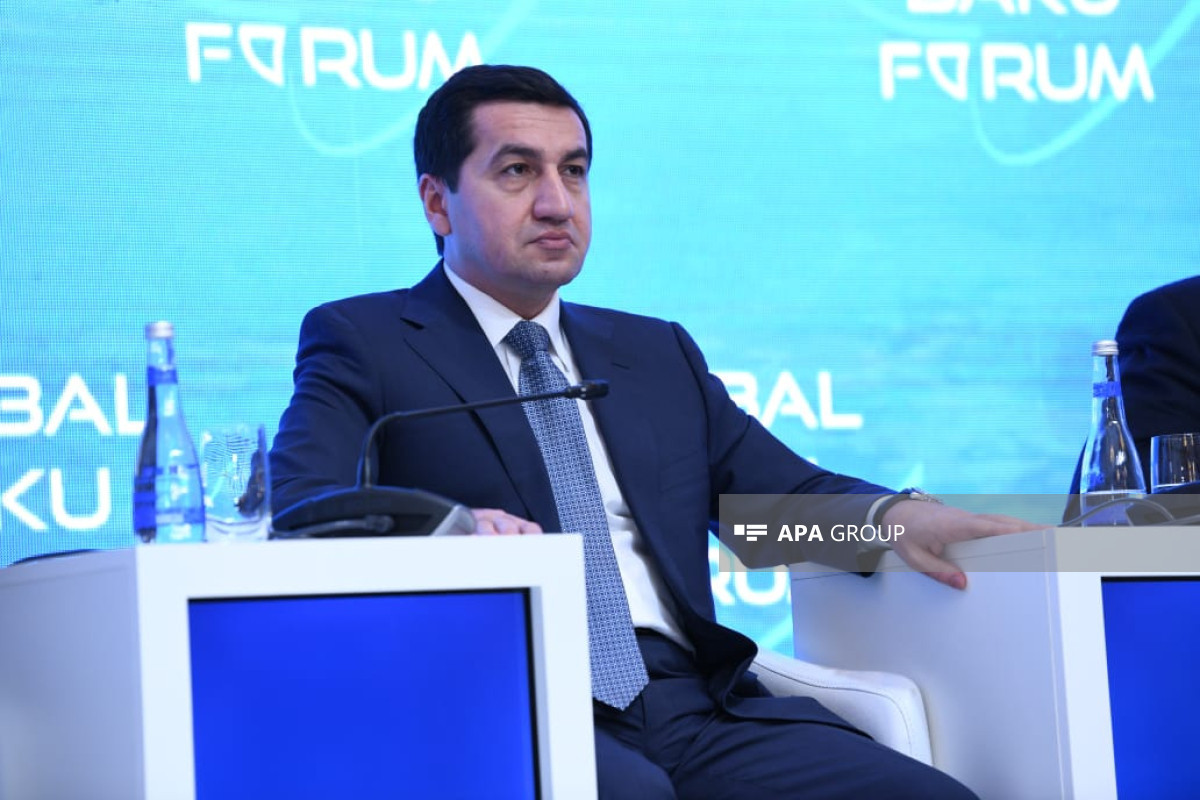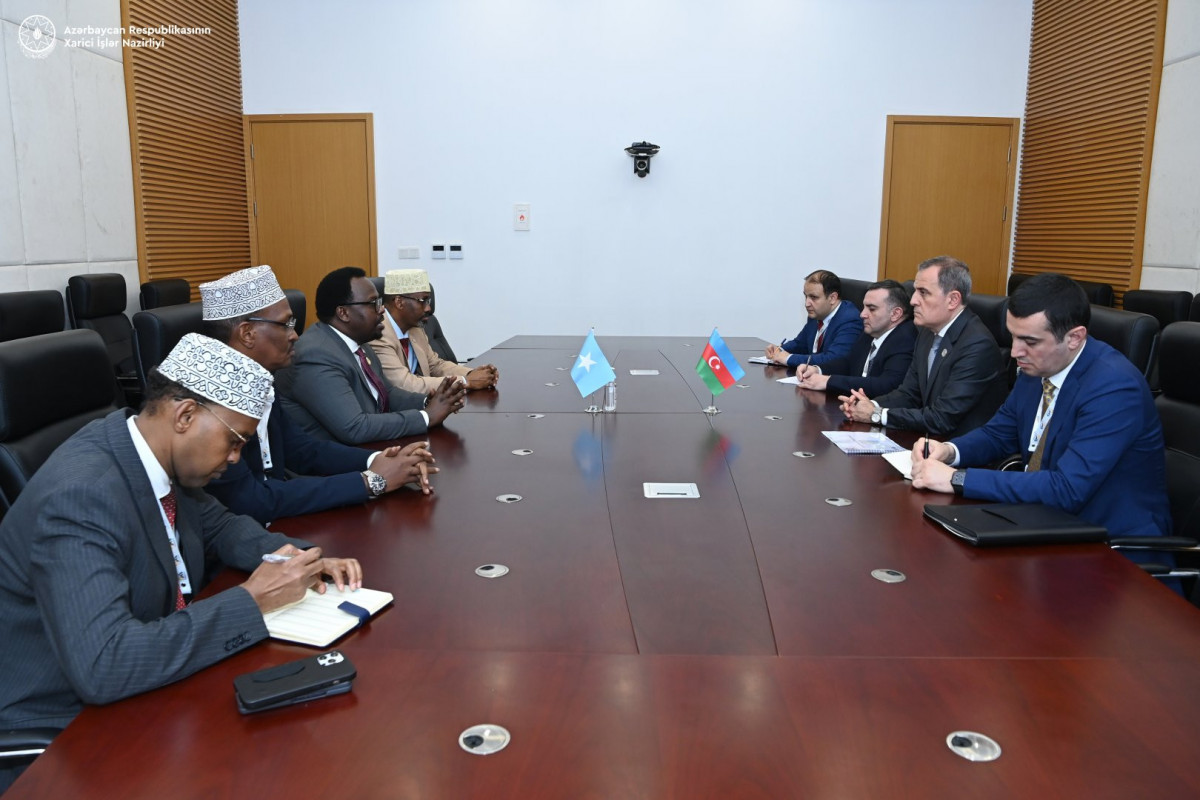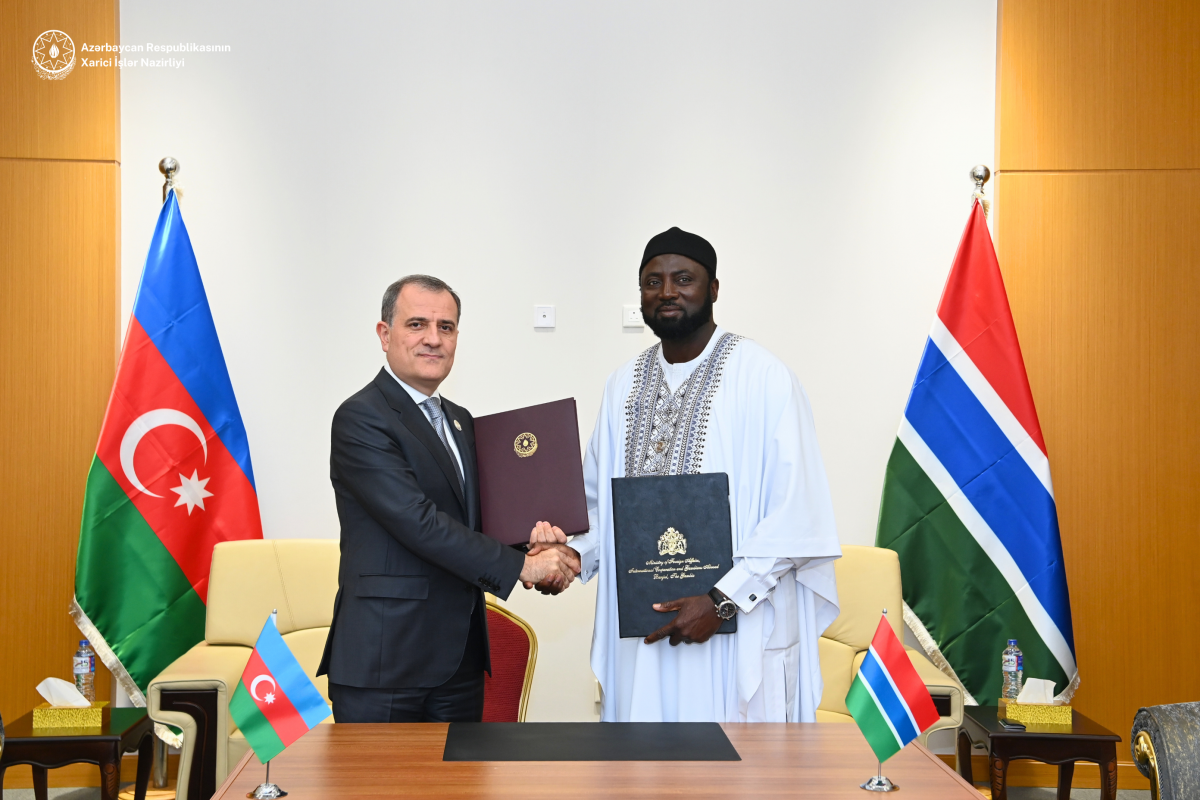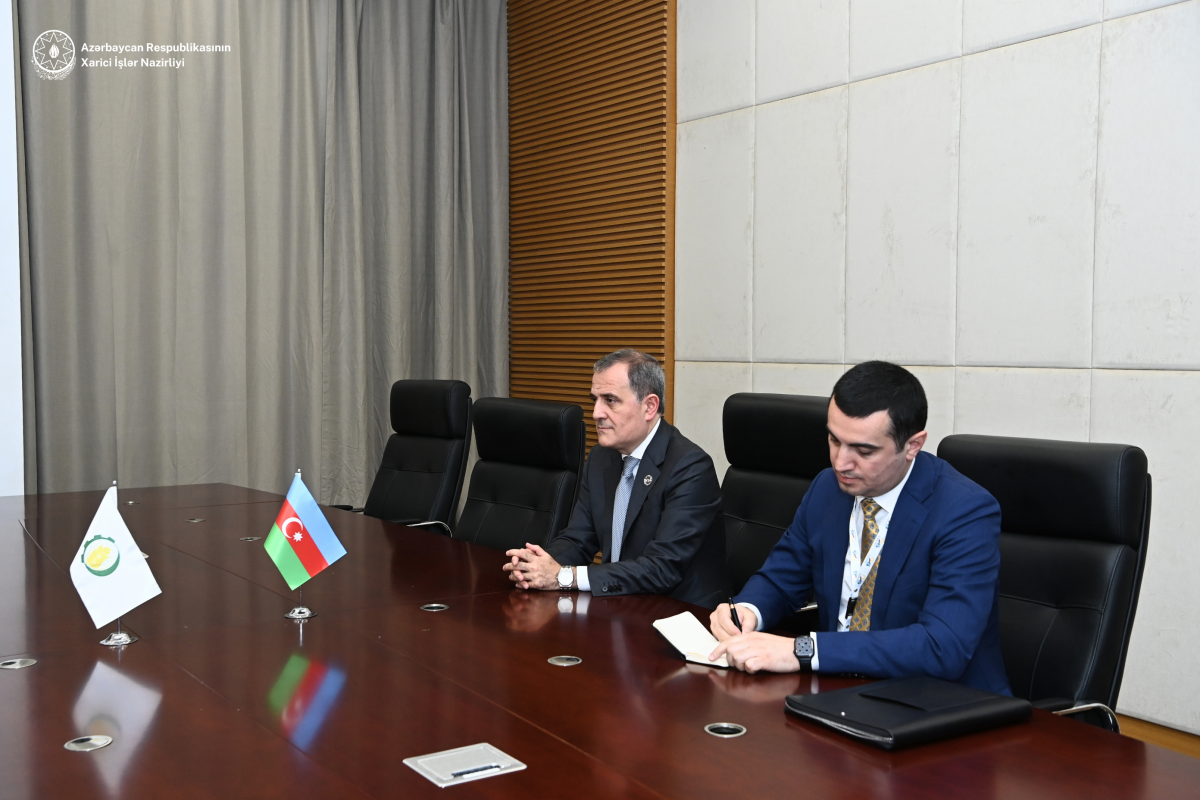Parliamentary Under Secretary of State at the Foreign, Commonwealth and Development Office, Minister of State for Europe and North America of the United Kingdom of Great Britain and Northern Ireland Leo Docherty gave an exclusive interview to APA Information Agency
– Mr. Minister, first of all, thank you for this opportunity. I want to start with the question on normalization and peace in the South Caucasus region, between Armenia and Azerbaijan, and negotiations of the Brussels track. These days we hear accusations from Baku against Europe that it is not neutral...
– Well, of course, we are deeply interested in peace in the South Caucasus. This week I have been to Yerevan and Tbilisi, in Georgia and now I am here, so we are very actively engaged. We believe there is a clear opportunity for peace to be cemented and we support any mechanism that can bring that about. Clearly, European countries have a role, America probably has a role, and the most important note, that the two most important countries are of course, Azerbaijan and Armenia. So, from the British side, we will do whatever we can to support that bilateral exchange of views and steps towards peace. For us, it is clear that an open, unique opportunity does exist now and we sincerely hope that both sides will take it.
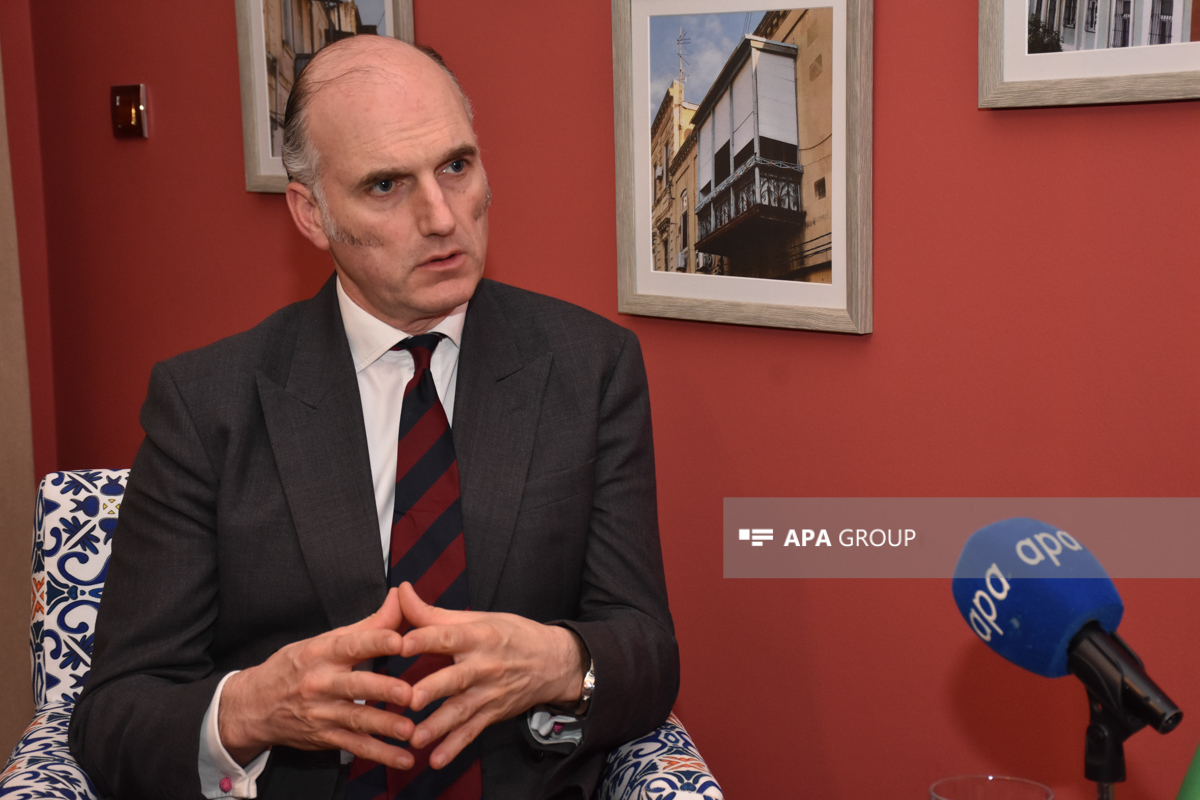
– Recently German minister Mrs. Baerbock who visited the region also suggested that Germany can offer a platform for the parties, or we hear from France that Paris can play a role in the mediation between the sides, as well as the United States. What about the United Kingdom?
– Well, I think we, of course, as a strong ally of Azerbaijan and also with a very strong relationship with Armenia, we have a role like many other countries, but I don't think it is useful for individual countries to just speculate on their own role. What is useful is for us to reassure both countries that we will be there to support them, and the process should be guided by the preferences of Azerbaijan and Armenia. That is the best way forward.
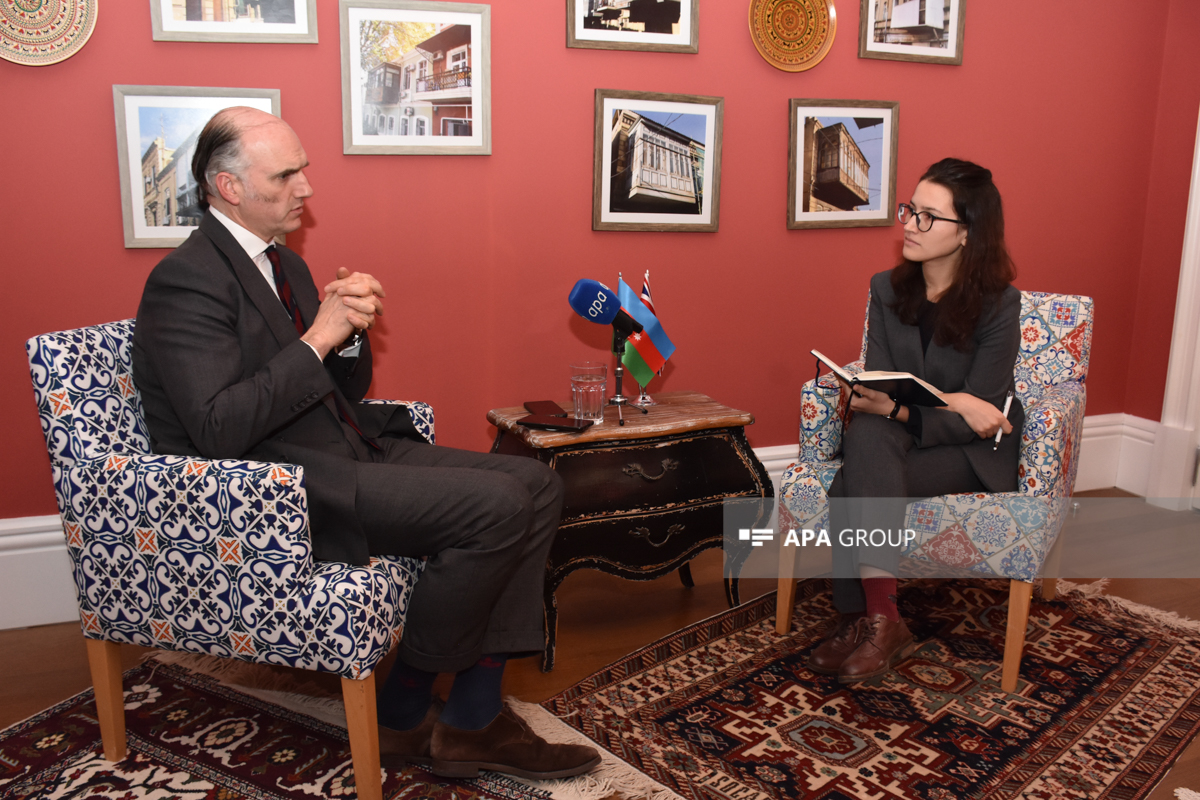
– Before Baku you visited Yerevan and as far as I know you have been familiarized with the "Crossroads of Peace '' project of the Armenian government. What is your impression, view on the project?
– Yes. Well, it is clear to us that a greater degree of connectivity right across the South Caucus is a very sensible thing. Of course, that connectivity already exists, and that is why Azerbaijan is such an important supplier of European energy and has been for many, many years and of course, that is how the British involvement in Azerbaijan came about because of the hugely important role it plays as an energy supplier to Europe. I think it is definitely the case that Azerbaijan and the South Caucasus as a bridge between Central Asia and Europe has a hugely important role to play. And if we can collectively improve infrastructure and connectivity, whether that means pipelines or electricity cables, or improve trade and infrastructure routes, all regions stand to benefit. The notion of "Middle Corridor" is a very serious proposition that I think all countries are interested in. Central Asian states are interested in bringing their energy to Europe without relying on Russia because they find Russia an unreliable partner. And I think we are very keen to have a role in terms of the infrastructural improvement. More trade means a more stable region and that is good for everyone.
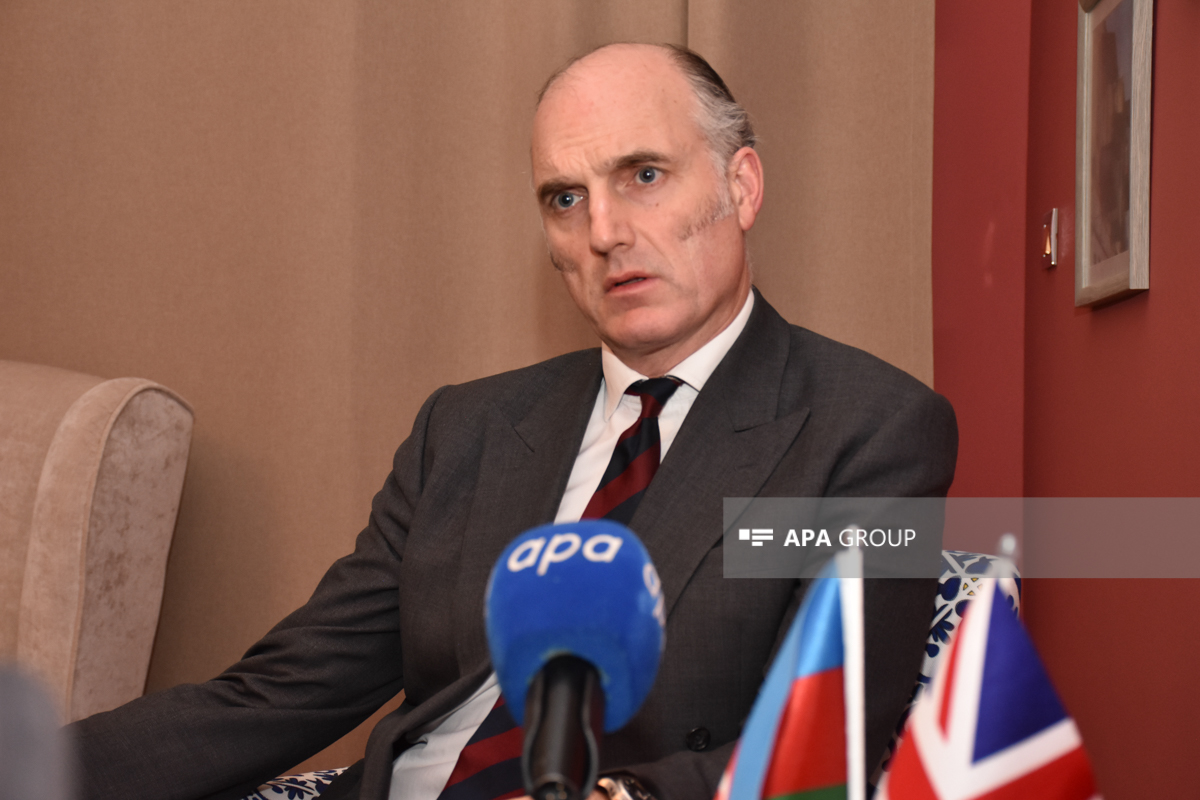
– You mentioned cooperation in the energy field, I would like to ask about accusations against this cooperation. There are accusations against Britain's commercial relations with Azerbaijan in the energy field. Recently I read a report in the British media, in particular BP projects in Azerbaijan that highlighted those projects helped Azerbaijan to fund military capacity, etc. What is your answer to those accusations?
– It is wrong. We regard the role that BP plays as a hugely important civic good in Azerbaijan. The prosperity that it generates in partnership with your country is hugely beneficial for everyone concerned, it is a force for stability and prosperity, and that is hugely important. I should also say that as we collectively make the transition from hydrocarbons, BP's role and Azerbaijan's role as a regional leader in renewable energy is something that is really becoming really very interesting. So, this sustainable and green future of Azerbaijan's energy source and its ability to supply Europe with renewable energy is something that is extremely exciting. And I am making that point because Azerbaijan has had a history of hydrocarbon energy. Its future I think will be increasingly in line with renewable energy. And again, that is a source of tremendous civic good. It is good for Azerbaijan, it is good for regional stability and it is critical to the economic development of Western Europe, frankly. Because actually that is a big opportunity if Azerbaijan can create clean green energy coming from the Caspian through the South Caucasus into Europe. That is a force for tremendous good.
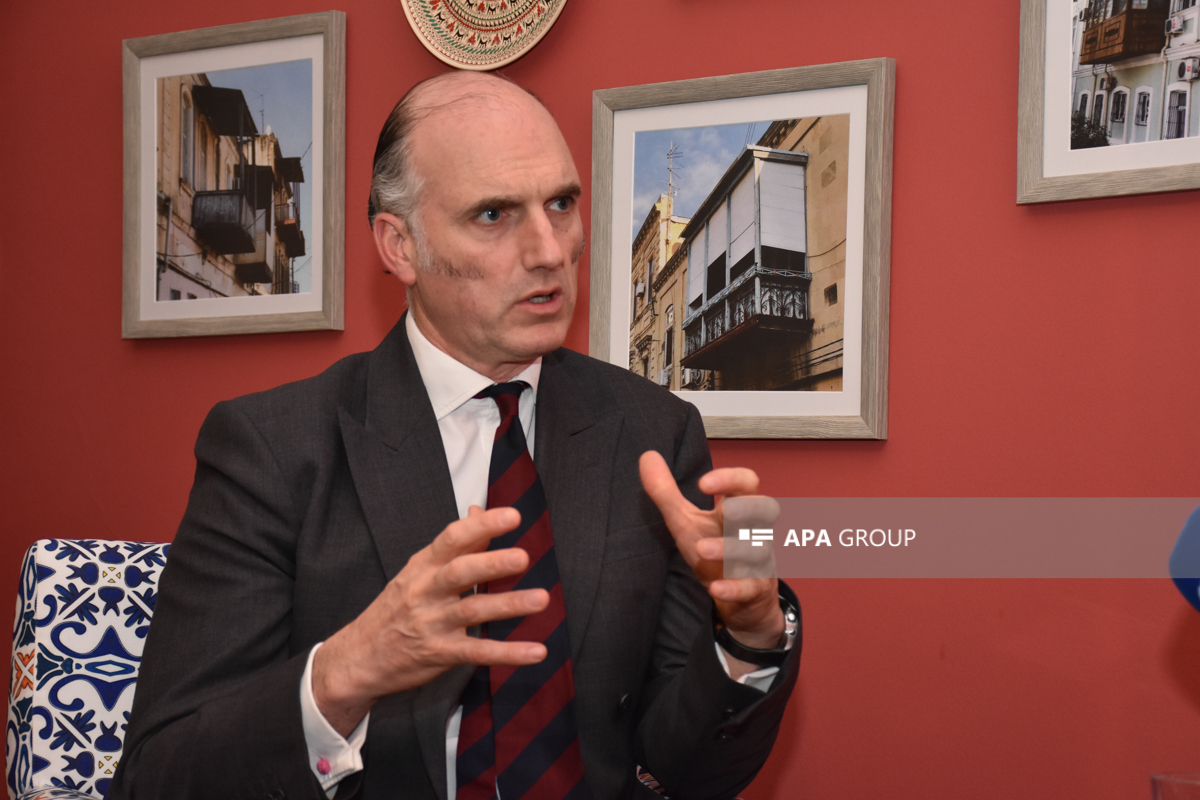
– About the de-mining process in Azerbaijan. As we know the UK is one of the biggest donors helping Azerbaijan to overcome this problem. So in future, we can expect more support in this regard?
– Yes. Absolutely, we're very proud of our role in de-mining. As you know Azerbaijan is one of the most landmine-contaminated countries in the world. We have a lot of expertise, we'd be very proud to build a strong relationship based on sharing that expertise. We've put in a great deal of money and what we're trying to do now also is to build a partnership that allows very specialist expertise and unexploded ordnance disposal to be shared with Azerbaijani partners. So, we would see that partnership last for many years because of course the task of de-mining will take many, many years.
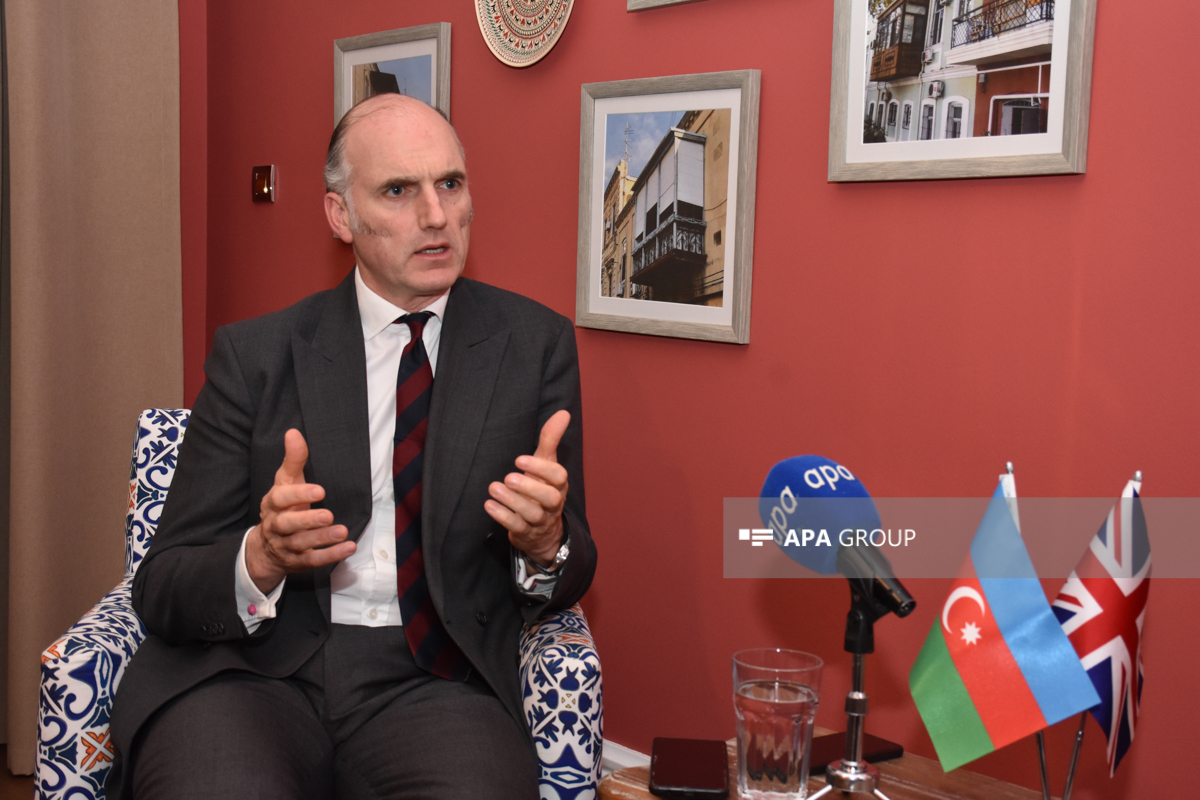
– Before your visit to the region you mentioned security challenges from neighboring countries of the South Caucasus. Well, there is a kind of view. I mean, some political experts say that in this region in South Caucasus if the countries more approach the Western world, more security challenges and threats coming from neighboring countries, South Caucasus will face. In this context, what Europe can promise Azerbaijan, Georgia, and Armenia if those countries face security challenges?
– That is a good question because as you have pointed out your neighbors or you are sandwiched between Russia and Iran. You know, you've explained to me why that is very, very challenging. I think what we really want, we're seeking a sustainable, long-term relationship that respects the needs of countries in this region to balance their own interests sometimes quite a delicate balance because you live in a tough neighborhood. We completely get that. So we seek to have relationships based on mutual trust and respect, it is not about countries taking sides or seeking to advance our own interests by building a friendship or a partnership or connection with another country. I think what we've shown with Azerbaijan that we absolutely respect the sovereign rights of Azerbaijan to conduct its own foreign policy in a very balanced and nuanced way. Alongside that, we have a tremendously deep and special relationship that has been forged over more than three decades. I think if it's done right and it's based on mutual respect, the country - Azerbaijan should be very confident about engaging with a partner like the UK, because as I said, the key word is partner, it is a real friend, not just a country that seeking to advance its own interests.
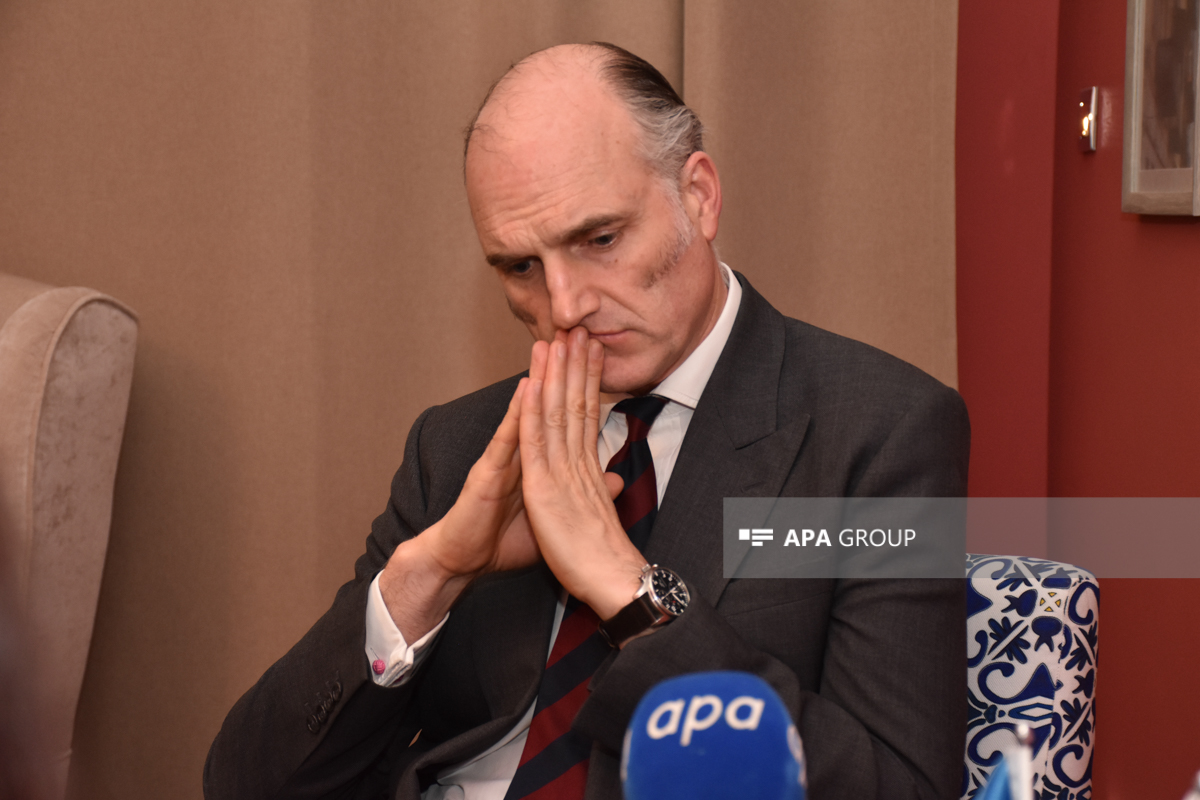
– I want to ask about the conflict in Ukraine, the Russian invasion of Ukraine, and its result also has a direct impact on our region. So, it's already been two years since the Kremlin's war started. But unfortunately, now we hear thoughts from the political circles about war fatigue. Thus will military support to Ukraine continue?
– Well, we will continue our support for as long as it takes. Minister of Foreign Affairs, Mr. David Cameron gave that message to our friends in Kyiv, we're completely resolute in our determination to support our friends in Ukraine. Clearly, it's a very difficult war. You know, this is always the case, this was never going to be easy and I think the measurement of war fatigue needs to be taken from the need to be measured by looking at the Ukrainians themselves. And I think what they continue to show is tremendous courageous capacity to continue the fight to liberate their homeland. And we have no doubt that will continue, we are completely resolute in terms of our support. I think the major Western economies that are supporting them have a political resolve and a deep abundance of material and financial support is still considerable, so clearly attention has been taken to the Middle East because of recent events. But I think helping Ukraine is fundamental.


